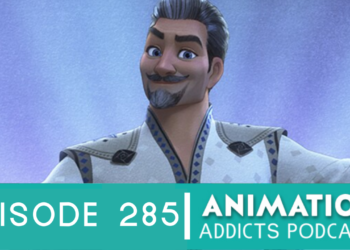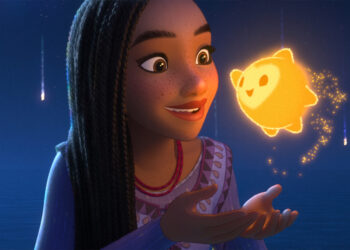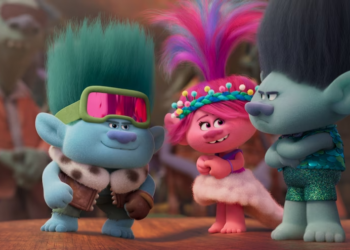After three seasons, Disney Channel’s hit animated series, Amphibia, has come to an end. Within that time, creator Matt Braly had managed to tell a complete story with a definitive beginning, middle and conclusion. But now that the dust has settled and the show’s finale has been given time to resonate, how does Amphibia ultimately hold up?
Amphibia chronicles the adventures of childhood best friends Anne Boonchuy (Brenda Song), Sasha Waybright (Anna Akana) and Marcy Wu (Haley Tju). On the night of Anne’s 13th birthday, a magical music box transports the trio to a fantastical world of talking amphibians, where they are separated. Stranded in this exotic new land, Anne embarks on a quest to find her missing friends and return home. She is aided on her journey by the Planters, a local frog family consisting of 10-year old Sprig (Justin Felbinger), Polly the polliwog (Amanda Leighton), and their curmudgeon of a grandfather, Hop Pop (Bill Farmer).
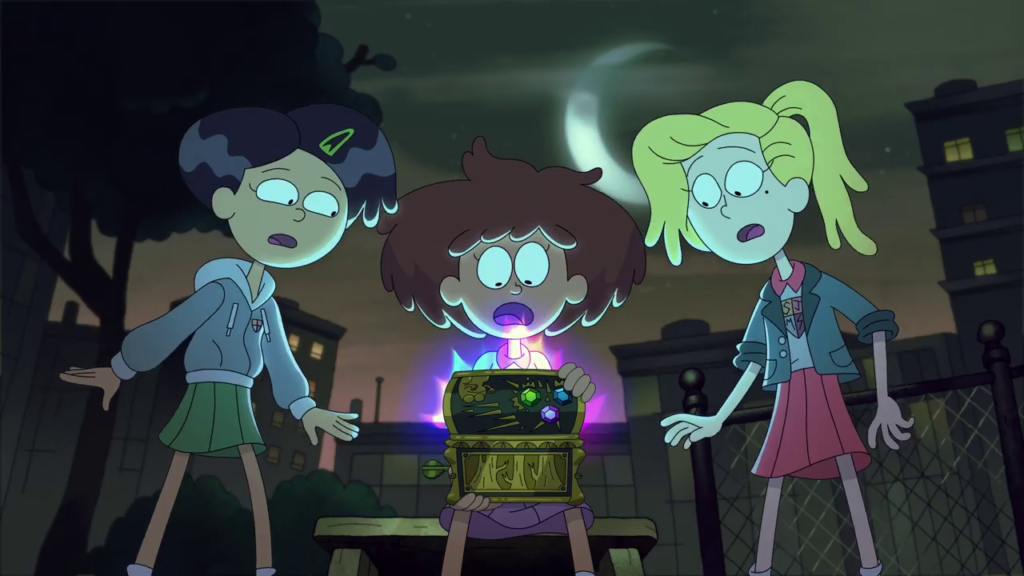
Inspired by such works as Hayao Miyazaki’s Spirited Away, Amphibia has all the hallmarks of a whimsical fantasy. There’s an imaginative world, colorful characters and adventures aplenty. The show largely follows an adventure-of-the-week format, through which its characters and their environment are given time to develop. All the while, the mystery surrounding the larger plot is gradually unveiled over time. And therein lies the brilliance of Amphibia‘s storytelling style. While there is certainly an overarching narrative that intensifies as the show progresses, Amphibia‘s bedrock is its characters. Their quirks carry the comedy, their motivations drive the story forward, and their charm maintains the show’s heart.
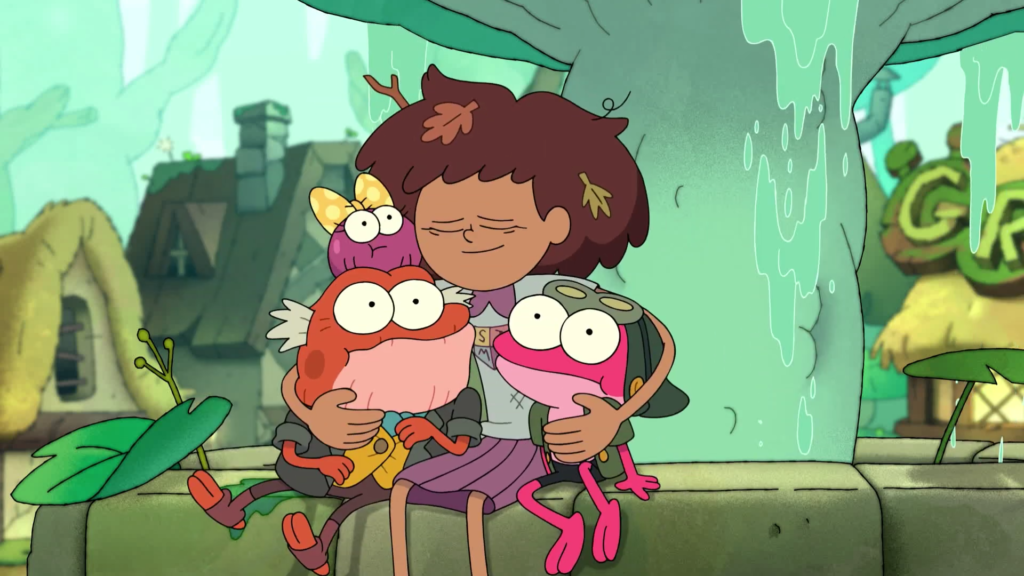
This is owed tremendously to the show’s exquisite writing, as well as its talented voice cast―all of whom fit their respective roles like a glove. Encompassing the tone of the show, Brenda Song’s distinct timbre perfectly balances snark, compassion and humor in her performance as Anne. Beyond the aforementioned actors, other standouts include Troy Baker, who is unrecognizable as the melodramatic Captain Grime. Keith David, meanwhile, brings Shakespearian gravitas to the colossal King Andrias. Whoopi Goldberg arrives late in the game as wise Mother Olm, but leaves an impression in spite of her relatively limited screen time. The likability of these characters is such that every episode, no matter how bombastic or mundane, is a joy to watch. The chemistry between the cast is also fantastic. The interactions between Akana and Baker, specifically, make for some of the show’s funniest moments. I’d happily watch a spinoff focused entirely on those two.
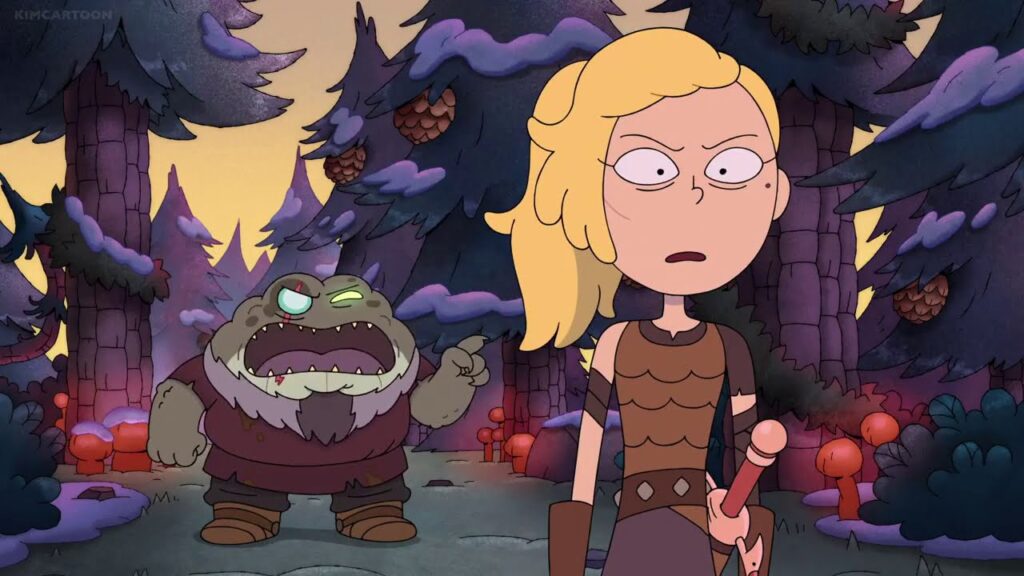
Phenomenal as the cast may be, they are far from the show’s only point of intrigue. The story of Amphibia is a rich, compelling tale that tackles themes of change, redemption, love and sacrifice. These motifs are prevalent from the beginning, and amplify in scope throughout the show’s run. And because it’s dealing with such human subjects, Amphibia remains emotionally resonate from start to finish. Most of us will never befriend newt kings or mystic olms, but we do experience grief and growth. Like any great fairytale, we can see ourselves in this story regardless of how fantastical the circumstances.
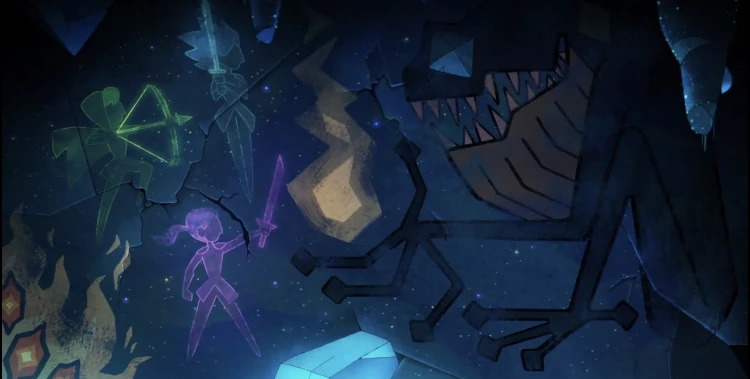
And fantastical they are, for Amphibia is an unabashed fantasy. By the series’ finale, we’ve transitioned from slice-of-life shenanigans to ancient prophecies and “Anime powers.” Such a divergence runs the risk of feeling needlessly convoluted, but Braly and his team handled the the mythos beautifully. The show’s lore, while intricate, never becomes confusing. Rather, every revelation feels natural within the context of the show’s established logic. Amphibia‘s attention to detail is so impressive, that it’s rewarding to rewatch episodes to find instances of foreshadowing.
What I respect most about Amphibia‘s storytelling, and the show as a whole, is its veraciousness. While by no means a tragedy, Amphibia directly addresses some of the harsh, yet universal realities of life. Life is not a fairytale. Our choices have consequences, and things don’t always work out the way we’d like―no matter how hard we hope or try. Likewise, change is inevitable. Circumstances, people and feelings all evolve with time and experience. What’s normal today, may not be normal tomorrow and that can be painful to accept. But rather than avoiding change, we should learn to accept it as an inevitability of life and healthily adapt to our new circumstances. It’s a profound, and frankly surprising take for a story of this nature.
I’d be remiss not to talk about the show’s technical achievements. Philip Vose and Jacob Streilein’s art direction is instantly striking. The gorgeously detailed backgrounds by such artists as Elle Michalka and Ian Worrel among others, evoke whimsy and a sense of history in every frame. There’s a charming simplicity to the show’s character designs, yet the storyboard artists and animators convey a wide range of emotion. Lastly, TJ Hill’s brilliant score, which elevates the show’s most powerful moments. My favorite musical pieces come from the episodes “True Colors” and “The Hardest Thing”, but the music of Amphibia is infectious all-around.
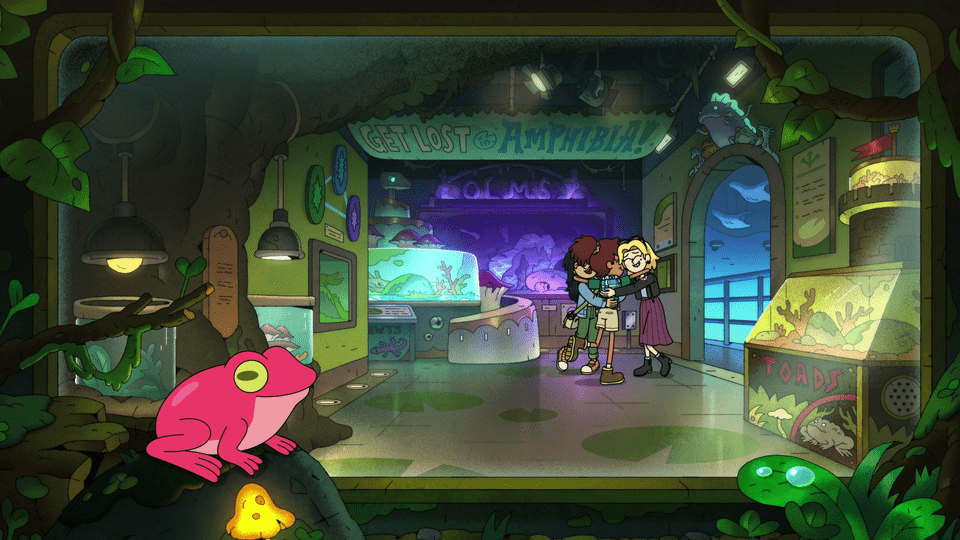
Amphibia is a triumph. A beautiful story with endearing characters that culminate in one of the best finales of recent memory. I had little faith when the show first premiered, yet by the end, I was an emotional wreck over the journey of a girl and her froggy companions. I’m happy to say, Amphibia is one of those rare shows that will stick with me for years to come.
Amphibia is available to watch now on Disney+


![[SERIES REVIEW] ‘Amphibia’: Disney Channel’s Magnun Opus](https://www.rotoscopers.com/wp-content/uploads/2022/05/BD0A0FDB-35F6-4749-8356-55A7440642EC-750x375.jpeg)
